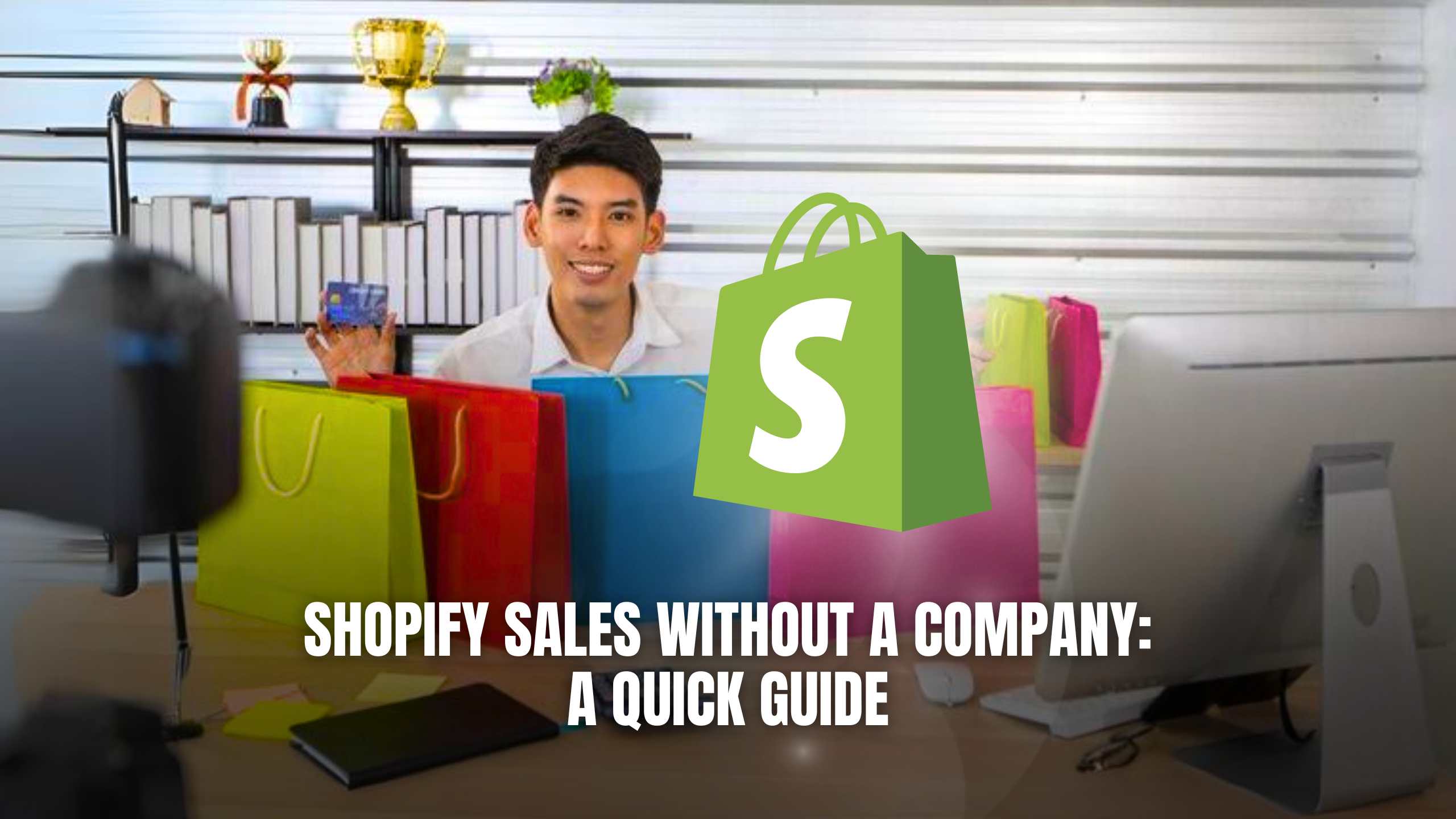Shopify Sales without a Company: A Quick Guide


Shopify Sales without a Company: A Quick Guide
In today’s digital landscape, selling products online has become more accessible than ever. With platforms like Shopify, individuals can start their e-commerce businesses without the need for a formal company setup. This quick guide will walk you through the process of selling on Shopify without being a registered company, addressing common queries and providing valuable insights.
1. Understanding Shopify’s Policy
Shopify allows individuals to sell products without a registered company. While having a registered business entity provides certain benefits, such as liability protection and tax advantages, it’s not a requirement to start selling on Shopify. As long as you comply with Shopify’s terms of service and legal requirements, you can set up your online store and start selling products.
2. Setting Up Your Shopify Store
To begin, sign up for a Shopify account and choose a pricing plan that suits your needs. Customize your store by selecting a theme, adding products, and configuring payment and shipping options. Since you’re operating as an individual, ensure that your store’s branding and messaging reflect your personal brand identity.
3. Fulfillment and Shipping
When fulfilling orders, you have the option to handle shipping yourself or use a third-party fulfillment service. Services like ShipBob or ShipStation can streamline the shipping process, allowing you to focus on growing your business. Additionally, Shopify offers integrations with various shipping carriers to simplify order fulfillment.
4. Managing Finances and Taxes
As an individual seller on Shopify, it’s essential to keep track of your finances and understand your tax obligations. Consider using accounting software like QuickBooks or Xero to manage your finances efficiently. Additionally, consult with a tax professional to ensure compliance with local tax laws and regulations.
5. Customer Support and Marketing
Providing excellent customer support is crucial for building trust and loyalty with your customers. Utilize Shopify’s built-in customer support tools, such as live chat and email marketing, to engage with your audience effectively. Additionally, leverage social media platforms and content marketing to drive traffic to your Shopify store and increase sales.
Relevant SaaS Products:
- ShipBob: Streamline your order fulfillment process with ShipBob’s advanced logistics solutions, ensuring fast and efficient shipping for your Shopify store.
- ShipStation: Simplify order management and shipping tasks with ShipStation’s powerful platform, integrating seamlessly with Shopify to optimize your e-commerce operations.
- QuickBooks: Manage your finances with ease using QuickBooks’ accounting software, helping you track expenses, generate invoices, and stay organized as a solo entrepreneur.
- Xero: Stay on top of your finances with Xero’s cloud-based accounting software, offering intuitive tools for invoicing, payroll, and expense tracking tailored to individual sellers.
Conclusion
Selling on Shopify without being a registered company is entirely feasible, thanks to the platform’s user-friendly interface and flexible policies. By following the steps outlined in this guide and leveraging relevant SaaS tools, you can establish and grow your online business with confidence.
Take Control of Your Shopify Sales Journey with Subscribed.fyi!
Ready to maximize your Shopify sales potential? Unlock exclusive deals on essential SaaS tools with Subscribed.fyi. Sign up for free today to access savings on subscription management solutions, e-commerce integrations, and more, empowering you to streamline your Shopify selling experience and achieve greater success.
Relevant Links:





